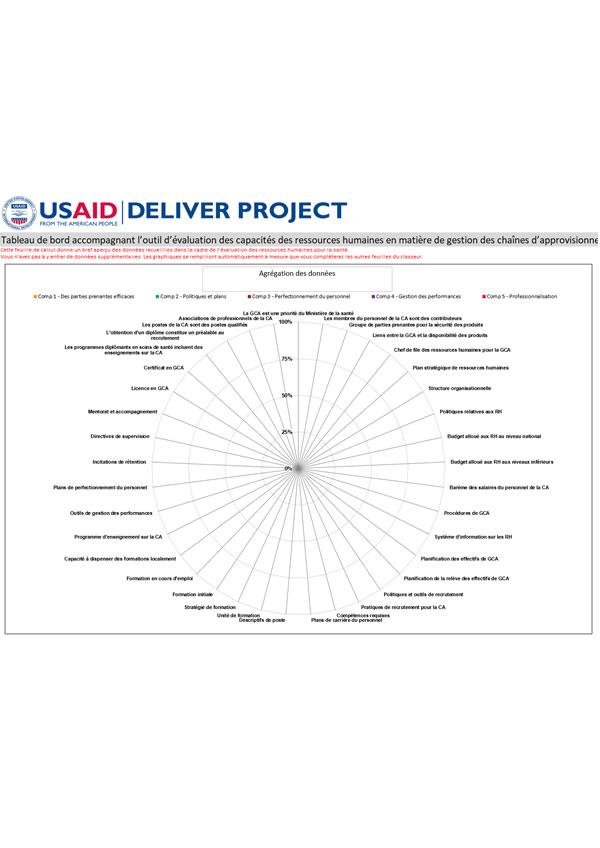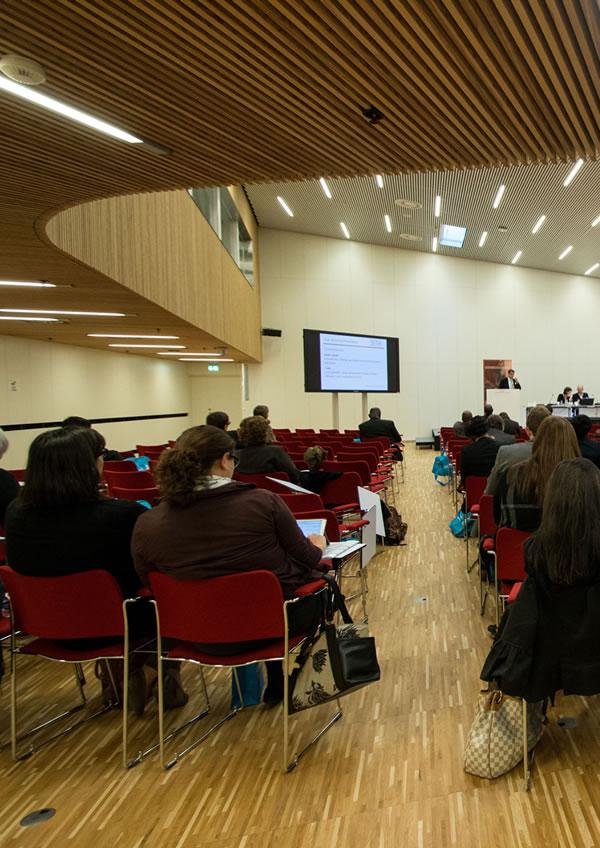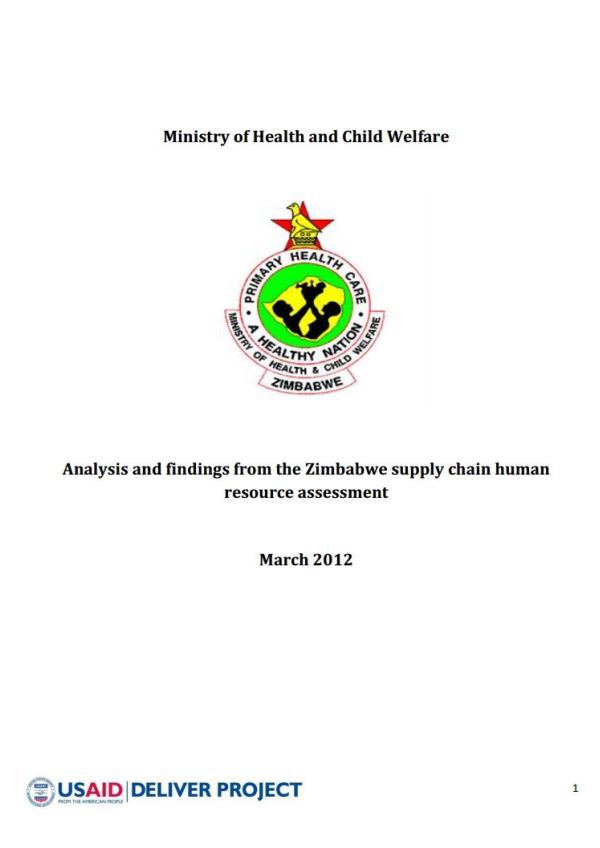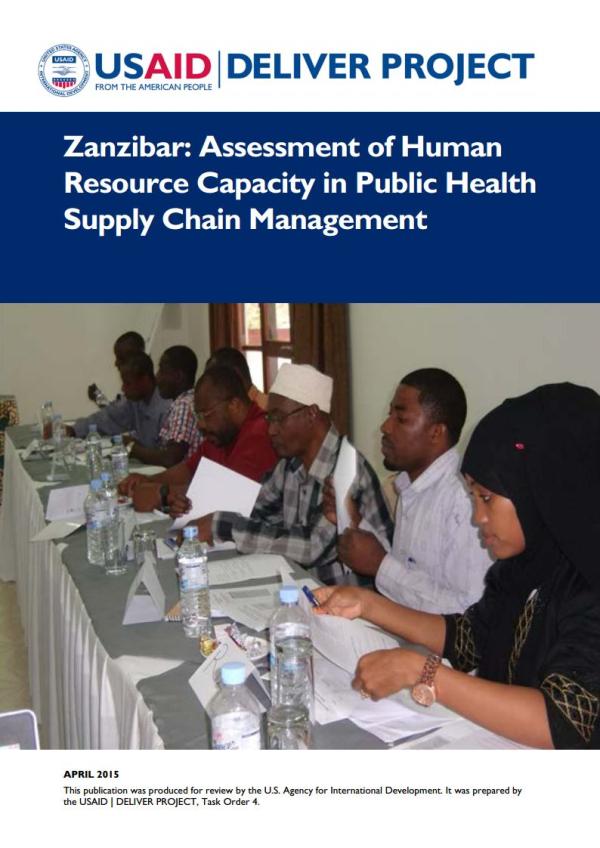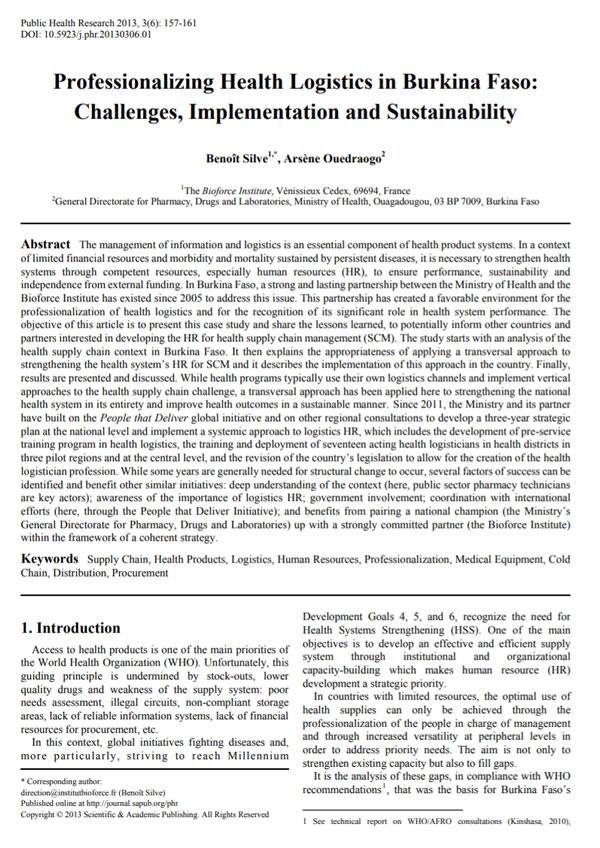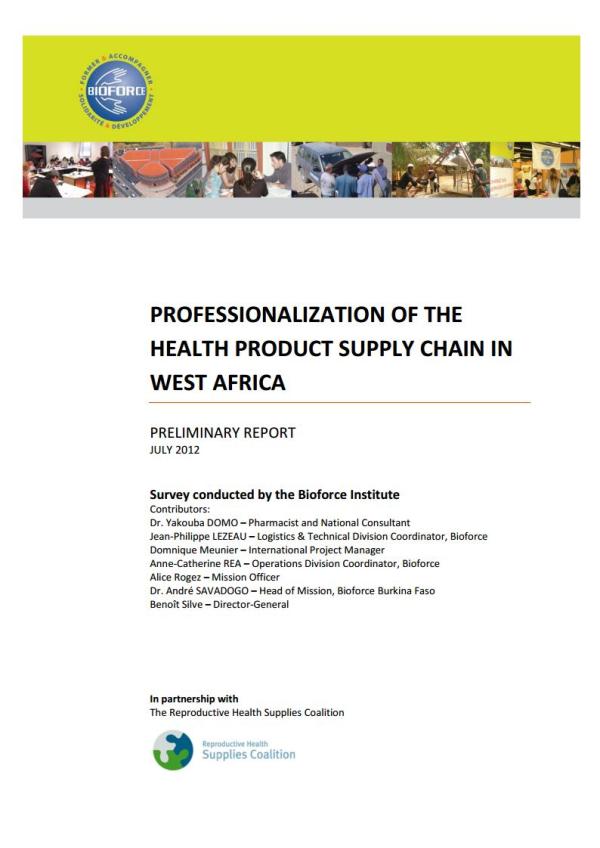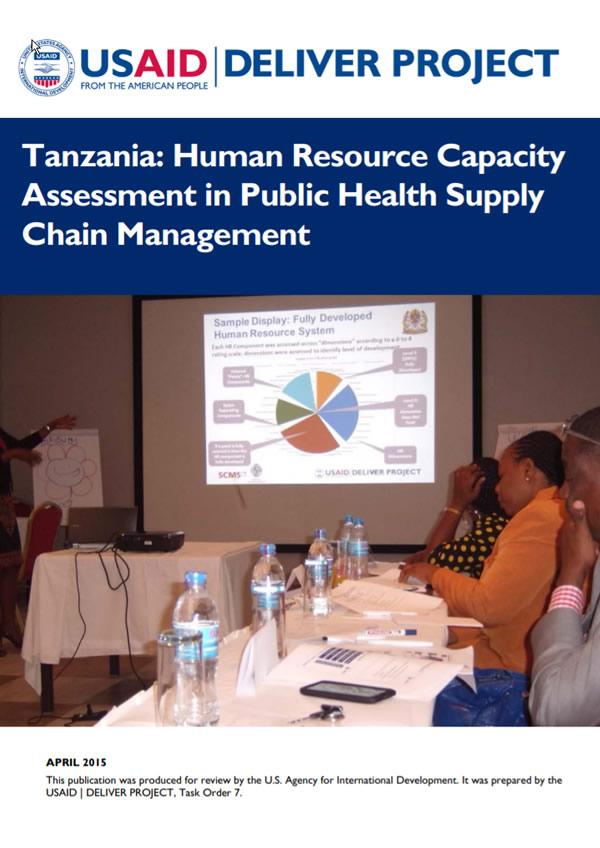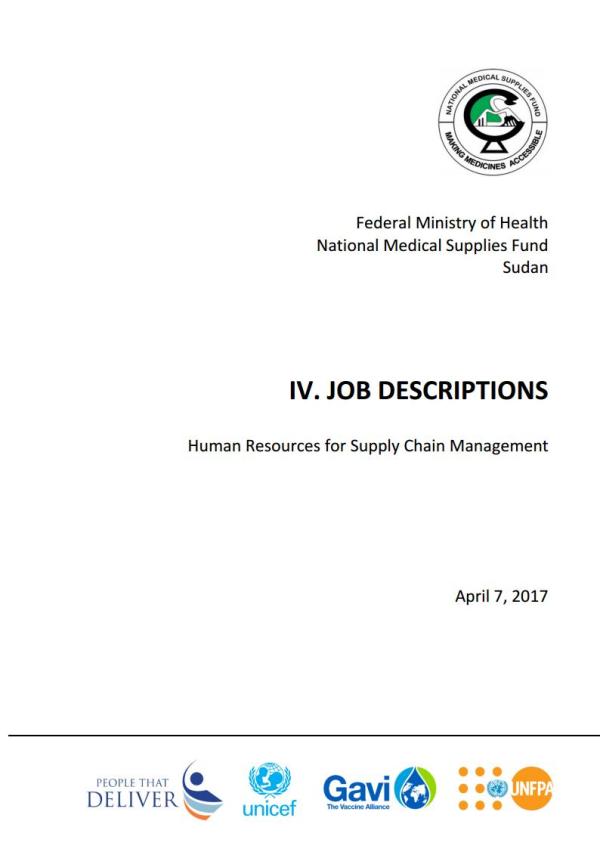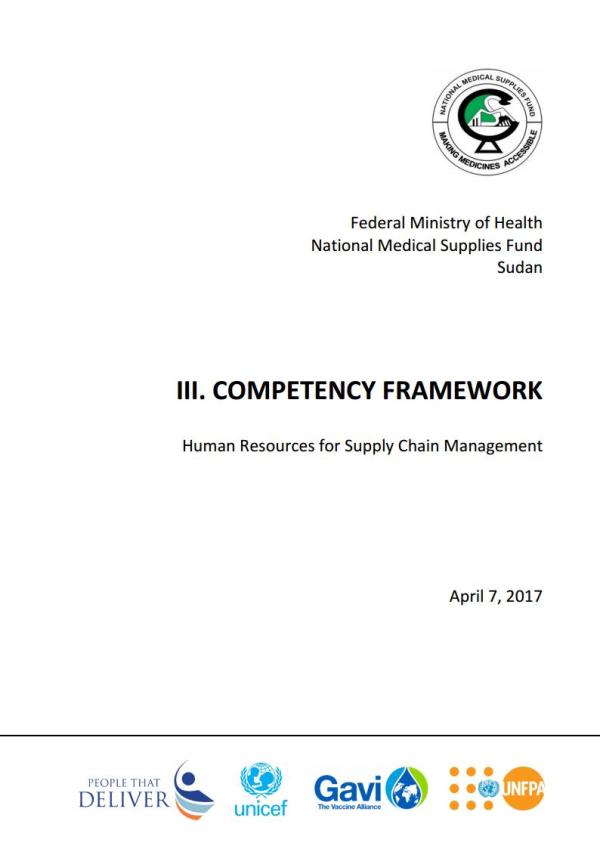VB: Resource
Resources
Tableau de bord accompagnant l’outil d’évaluation des capacités des ressources humaines
Tableau de bord accompagnant l’outil d’évaluation des capacités des ressources humaines en matière de gestion des chaînes d’approvisionnement du secteur de la santé publique.
- Category: Tool
- Country: Global
- Focus area: Evidence-based solutions
- Language: French
Founding conference (2011)
On June 28th and 29th, 2011, 170 representatives - from 13 country delegations and more than 75 organizations - assembled at the World Health Organization headquarters in Geneva for the Global Positioning and Harmonization Conference of the People that Deliver Initiative (PtD).
- Category: Conference material
- Country: Global
- Focus area:
- Language:
Second PtD conference on human resources in supply chain management (2014)
The Conference had 160 participants from 20 countries.
- Category: Conference material
- Country: Global
- Focus area:
- Language:
Analysis and findings from the Zimbabwe supply chain human resource assessment
To understand constraints and guide solutions that will develop Zimbabwean public health sector supply chain human resources the Ministry of Health and Child Welfare (MOHCW) Directorate of Pharmacy Services (DPS), with support from the USAID | DELIVER PROJECT, carried out an assessment of human resources for supply chain management in March 2012. The purpose of this assessment was to:
- Document the state of Zimbabwe’s public health supply chain human resource capacity;
- Identify opportunities to build the organizational and individual capacity of public health supply
chain human resources; and
- Document professionalization efforts of supply chain personnel.
- Document the state of Zimbabwe’s public health supply chain human resource capacity;
- Identify opportunities to build the organizational and individual capacity of public health supply
chain human resources; and
- Document professionalization efforts of supply chain personnel.
- Category: Report
- Country: Zimbabwe
- Focus area: Country engagement
- Language: English
Zanzibar: Assessment of human resource capacity in public health supply chain management
A well-trained, professional workforce is the foundation of any health system. Because of this, in 2007, the World Health Organization (WHO) included workforce performance as one of six building blocks in its health system framework needed to strengthen health systems. Similarly, ensuring the continuous availability of commodities is a critical element of a well-functioning public health system if it is to provide health workers and customers with vital public health products. To ensure commodity security (CS), a supply chain must engage the right people, in the right quantities, with the right skills, in the right place, at the right time to follow the procedures that direct supply chain operations and ensure the supply of health products. An undisputed requirement of supply chain human resource (HR) strengthening is high-level champions. Toward this end, it has become increasingly apparent to the USAID | DELIVER PROJECT that our HR work must ask for input and support from supply chain managers at the highest level (Proper 2014).
- Category: Report
- Country: Zanzibar
- Focus area: Country engagement
- Language: English
Professionalizing health logistics in Burkina Faso: challenges, implementation and sustainability, Bioforce with MoH Burkina Faso, 2013
Access to health products is one of the main priorities of the World Health Organization (WHO). Unfortunately, this guiding principle is undermined by stock-outs, lower quality drugs and weakness of the supply system: poor needs assessment, illegal circuits, non-compliant storage areas, lack of reliable information systems, lack of financial resources for procurement, etc. In this context, global initiatives fighting diseases and, more particularly, striving to reach Development Goals 4, 5, and 6, recognize the need for Health Systems Strengthening (HSS). One of the main objectives is to develop an effective and efficient supply system through institutional and organizational capacity-building which makes human resource (HR) development a strategic priority.
- Category: Research
- Country: Burkina Faso
- Focus area: Advocacy
- Language: English
West African region survey, July 2012
In order to identify the relevant actions that must be taken to improve health systems’ supply chains, Bioforce proposed to conduct a survey. As a result of this initiative, the present survey aims to generate a complete picture of the performance of the workforce in charge of SCM in the West African sub-region, and to consider areas for improvement.
- Category: Report
- Country: West Africa
- Focus area: Country engagement
- Language: English
Tanzania: Human resource capacity assessment in public health supply chain management
To respond to widespread and systemic human resource weaknesses within health systems, a broad group of governments and organizations have created a joint initiative—People that Deliver (PtD)—which aims to strengthen supply chain personnel capacity while encouraging the professionalization of their role within the health system. This global initiative, in association with the project (a U.S. Agency for International Development–funded project), developed a human resource assessment guide and tool to gather data on human resource opportunities and challenges associated with supply chain management (SCM). The data collected are expected to strengthen the capacity of supply chain personnel by working with host countries to build human resource systems and advocate for the professionalization of supply chain management. Strengthening the capacity of public health supply chain personnel from the top down will ensure that the supply chains and health systems operate more effectively, which will improve access to health supplies and save lives.
- Category: Report
- Country: Tanzania
- Focus area: Country engagement
- Language: English
NMSF job descriptions
A collection of resources comprising the Training Strategy 2017-2021, Annual Training Plan, Competency Framework and job descriptions.
- Category: Report
- Country: Sudan
- Focus area: Country engagement
- Language: English
NMSF competency framework
This competency framework sets out the technical, managerial, organizational and personal skills that staff at headquarters and state level within NMSF are expected to have and the professional competency profile for every post in the organization. It complements the People that Deliver (PtD) Health Supply Chain Competency Framework for Managers and Leaders and ensures that each activity can be undertaken to a required level depending on the post.
- Category: Report
- Country: Sudan
- Focus area: Country engagement
- Language: English

